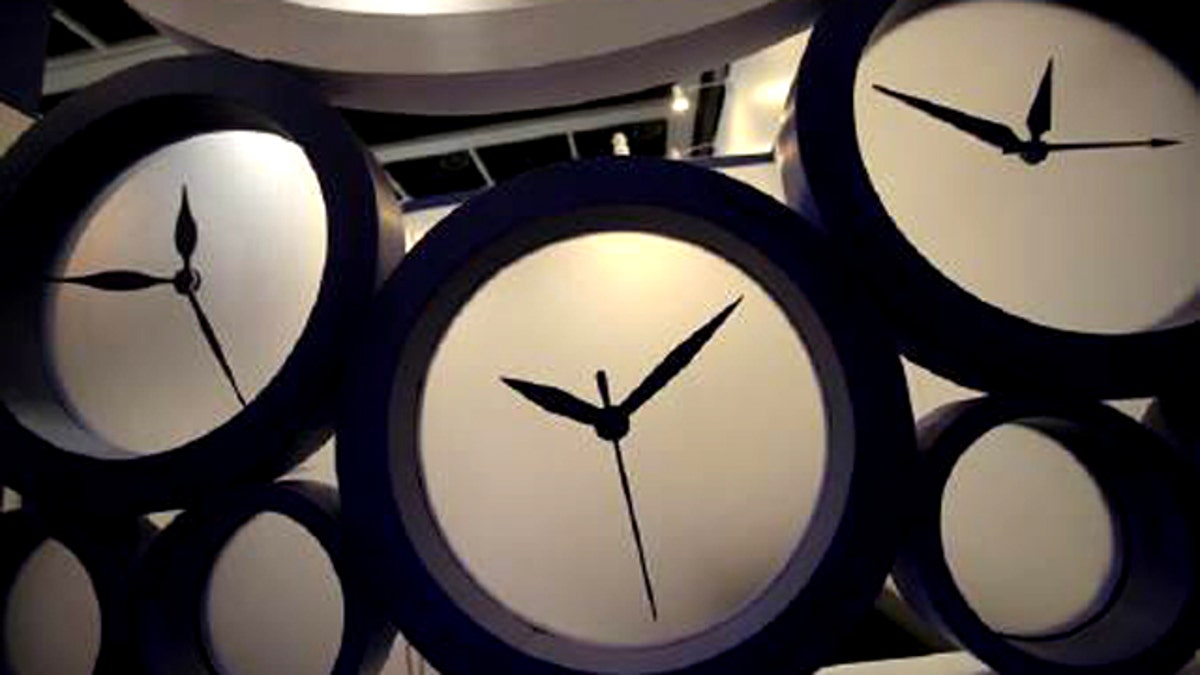
Scientists have identified the mechanism that controls the internal 24-hour clock of all forms of life. (Reuters/Tyrone Siu)
They oughta call them the Time Bandits.
Everyone knows leap years occur every four years. But thanks to science’s ability to measure things very, very precisely, every now and then we have to add in an extra second, too -- a "leap second" that keeps our clocks coordinated with the movements of the planets.
So why are some telecommunication groups considering redefining Coordinated Universal Time (UTC) to get rid of the leap second -- at the potential expense of science? And why have a leap second anyway?
“A satellite moves miles in a second,” David Finkleman, the senior scientist at the Center for Space Standards and Innovation, told FoxNews.com. “We adjust things down to the level of fractions of a second in able to correlate where the moon is, where satellites are, where the sun is -- to have precision for our modern world,” he explained.
"Other people are concerned with radios and televisions ... for them, this extra second every once in a while is an inconvenience," Finkleman said.
"But they’re the ones in charge of defining what time it is,” he added.
In the July-August 2011 issue of American Scientist, Finkleman and some fellow scientists published an article titled “The Future of Time: UTC and the Leap Second” in which they detail the history of the atomic second. In 1972, they explained, the atomic second was adopted in order to more accurately track time -- it's based on vibrations in a cesium atom, not the movements of celestial bodies.
The atomic second ultimately gave birth to the unusual leap second -- unusual because there’s really no way to tell when exactly one will need to be inserted.
The atomic second never changes while the rest of the universe is always transforming and modifying, Finkleman explained; leap second keeps clocks and planets in sync. Since 1972, 24 have been added, all with varying lengths of time from one another.
“The problem is that all of these celestial phenomena are not constant,” Finkleman told FoxNews.com. “The moon is slowing down; the distance from the Earth to the moon is getting farther away. And if the Earth slows down at all, the day changes. The atomic second is a constant but the length of the day is not, so when that happens, we have to make up the difference.”
According to Finkleman, an occasional 61-second minute is beneficial to most everyone -- except those who use precise systems unable to accommodate minutes with an extra second. That's why he believes the ITU, a union mainly representing the radio and television community, feel they would be better off without the leap second.
The case to discard the leap second will be presented in January 2012 at the ITU’s World Radiocommunication Conference in Geneva, but the ITU says no major changes are happening just yet. According to the union, the matter is being presented merely as a result of a debate that has been going on since the leap second’s conception.
“This is not of the interest or the concern for the ITU,” Colin Langtry, a representative for the ITU, told FoxNews.com. “The ITU has this role because the main mechanism for coordinating a universal time system was through radio communications."
Some organizations it works with "would just like to simplify time for communication purposes,” he said.
Langtry noted that a number of possibilities could result from the Geneva meeting in January.
“The assembly can decide to approve this measure or could decide not to approve it. Or it can even decide that these matters would best be considered by some other organization. We may outline some steps to take to transfer that responsibility -- or it may be decided that even more consultation is required.”
For now, Finkleman and his colleagues simply feel that much more study and research is needed before any drastic measures like those being discussed are taken. The situation could be vaguely similar to the Y2K scare, he said.
“No one knows what the real impact would be,” Finkleman told FoxNews.com. “We don’t know how many scientists are actually using this thing correctly and need it. It’s all very recent -- in the last 40 years, all this has happened. Now, one-millionth of a second matters. My colleagues and I are really campaigning for an extensive survey to see how many people use it and how many people don’t.”
“Right now, nobody knows,” he said.
